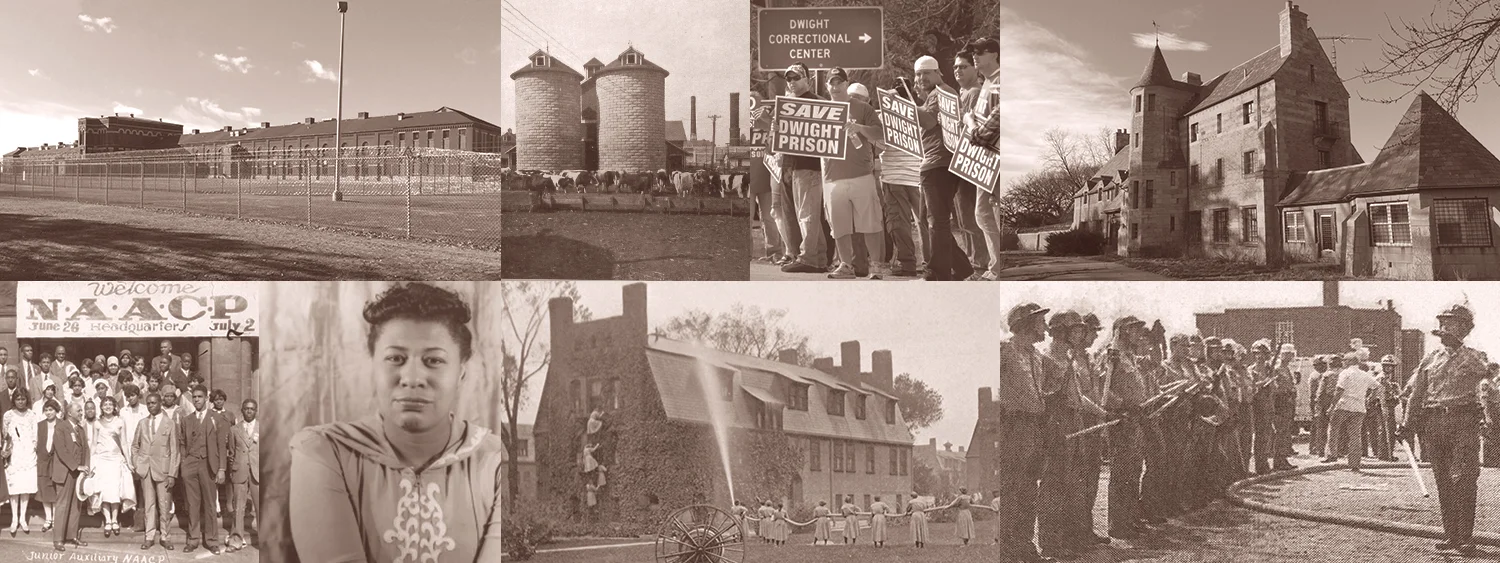Remembering a Prison Farm
/Oral history narrator Durell Pritchard, who shares his memories of the prison in Pontiac, IL.
Durell Pritchard lived on a farm outside of Saunemin, Illinois, a small town in Central Illinois. He moved to Pontiac, Illinois, host to the historic Pontiac Correctional Center, when he was five years old. Durell graduated from high school and became an auto mechanic, a profession he was employed in most of this working life. Then in 1970, he and his wife, Marilyn, bought a hobby craft and bicycle business and operated that in Pontiac for 15 years. Durell and his wife are active in the community and helped to found the Route 66 Museum in Pontiac.
In this excerpt from an interview with Durell conducted on August 6th, 2018 by PPMP summer intern Michala Matuszewski, a high school student in Pontiac, he talks about his memories of the prison and its farm. Durell's uncle was in charge of raising hogs on the prison farm in the 1940’s.
The prison farm was an integral part of life at the prison going back to the 1800’s. It was a prison management tool, it provided food for prisoners and staff, and it provided work and training in the prison’s early history as a reform school for boys and reformatory for young men. At various times, it also brought in considerable revenue when outside companies bought prison farm produce and livestock.
When the Illinois State Reformatory closed in 1933 and transformed into the Illinois State Penitentiary for adult men, the farm continued and, according to local people in Pontiac, existed at least through the 1960’s. Today, the prison farm buildings are occupied by the medium-secure unit (nicknamed “The Farm”) at the other-wise maximum-secure Pontiac Correctional Center. Much of the land once used for the prison farm that lies outside the secure perimeter of the Pontiac Correctional Center is now used for other purposes, including as a practice facility for the Pontiac high school football team.


